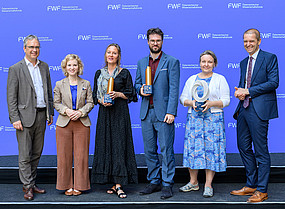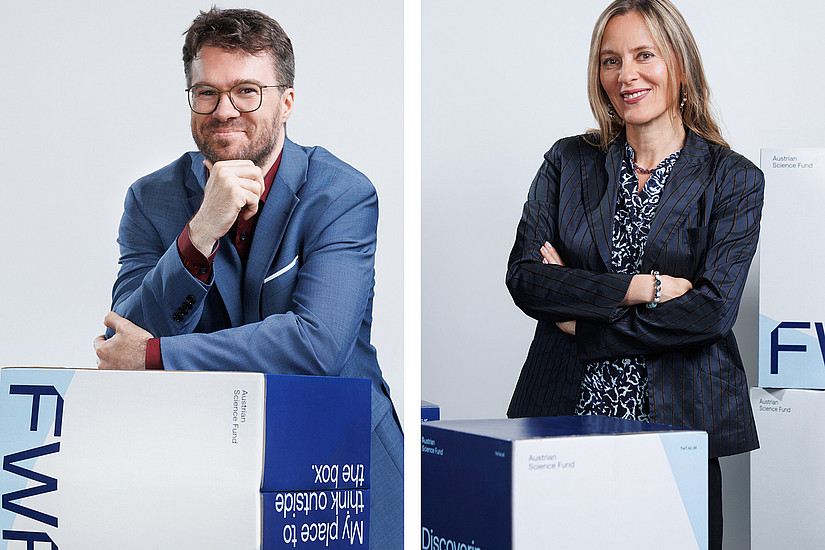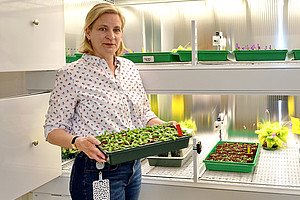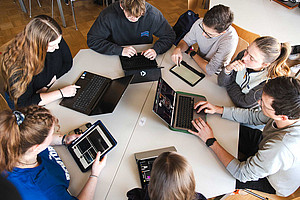"Excellent research transcends borders, in thinking as well as between countries and cultures. The University of Graz thrives on international exchange and is taking targeted measures to offer even more academics from all over the world an attractive research environment. Highly endowed grants such as the FWF's ASTRA Awards make a decisive contribution to this," says Rector Peter Riedler, emphasising their importance.
"The University of Graz competes internationally for the best minds. The ASTRA Awards give particularly talented researchers the opportunity to pursue their innovative projects and thus establish themselves at the forefront of the scientific community," says Joachim Reidl, Vice-Rector for Research.
A philosophy to explain the inexplicable
One hundred years ago, physicists Werner Heisenberg, Max Born and Pascual Jordan formulated the first foundations of quantum mechanics. To this day, this theory determines our understanding of the nature of matter. Nevertheless, it is still regarded as mysterious or even incomprehensible. The philosopher Philipp Berghofer aims to provide a phenomenological-epistemological foundation for understanding quantum mechanics. "According to this approach, quantum mechanical probabilities are not real properties of nature. Rather, they describe what a subject can reasonably expect to experience next. Quantum mechanics is therefore not to be understood as a theory about external processes, but as an epistemological project," explains Berghofer.
Exploring hidden religious traditions in Southeastern Europe
From counter-clockwise dance and ash-filled cressets - Southeastern Europe is home to lesser-known religious traditions and rituals, some of which have their origins in pre-Christian beliefs or heresies. Historian Bojana Radovanović tracks them and takes a look at the region's complex past. "I am investigating the little-researched interfaces between popular religion, heresy and pagan remnants and want to show the transitions between faith, folklore and history in a geographical context," says Radovanović. In addition, she connects local religious dynamics to wider European and global developments in order to bridge divides between Eastern and Western Europe and make the shared cultural heritage visible.
Zero Emissions Award for Katalin Barta Weissert






